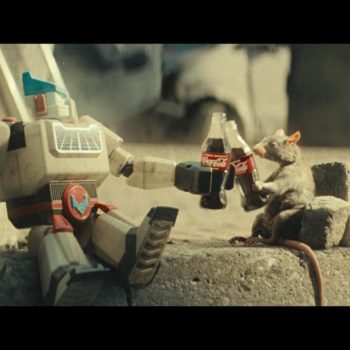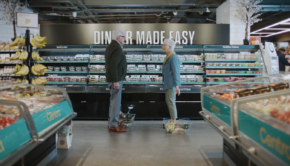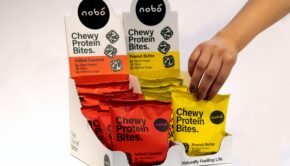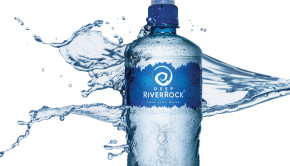New campaign from Coca-Cola to tackle “empathy gap” in increasingly divided society

As new research finds 25% of young people say they won’t listen to others’ problems if their own are worse, Coca-Cola has launched a new campaign to try and close society's "empathy gap"
13 February 2020
In a move reminiscent of Coca-Cola’s 1971 iconic ‘I’d like to buy the world a Coke’ Hilltop ad, the soft drink behemoth has now launched a similarly thought-provoking advert. New Coca-Cola research across Europe* has found an “empathy gap” is opening up in today’s society, due to a lack of willingness to listen and talk to each other and see things from someone else’s point of view – an issue particularly prevalent among young adults (16-24 year olds).
Almost two-thirds of young adults in Europe feel that we can find greater happiness as a society if we behave more empathetically towards each other. And 63% of all Europeans surveyed said that listening to and understanding others can lead to a happier society.
The need for everyone in society to show more empathy is brought to life by Coca-Cola in a new campaign for 2020. In a press statement, the company said “the campaign builds on Coca-Cola’s 134 year old brand purpose of uplifting and uniting people for a more joyful world. The insight is that we all have the capacity to understand how others feel. However, instead of listening to each other and trying to see things from a different perspective, sometimes we are simply not listening and often seek to reinforce our own beliefs.”
The new campaign includes a television commercial, which will run in selected countries across Europe this month and highlights the empathy gap.
Created by Wieden+Kennedy London, the ad immerses the viewer in a hectic and hostile urban environment. It’s a familiar scene: the noise and negativity are overwhelming; everywhere we look, people are shouting about who is right and who is wrong. As the disagreements escalate, physical cracks appear, and the world begins to crumble around the people, who are somehow oblivious to the destruction.
Finally, straight-talking Golden Globe and Emmy-nominated producer, writer, director and actor Natasha Lyonne appears amongst the chaos to suggest a different approach: “What if we all asked ourselves, ‘Could I be the one who’s wrong?’ Maybe things would change for the better.”
“It’s not often that people feel genuinely heard and truly understood,” says Walter Susini, senior vice president of marketing EMEA. “Empathy is about the small, not the big; the personal, not the global. We listened to consumers as they explained the way they live their lives and their feelings about connectedness. What we found is that young people say they do not feel genuinely heard and even in today’s over connected world more than 50% of Europeans feel disconnected from each other.”
The research also highlighted that even though today we are healthier, living longer, and there is more equality, safety and democracy than ever before, only one in three young people (aged 16-24) feel that it’s the best time to be alive. Only 49% of Europeans believe that we have more in common with each other, than things that divide us.
Susini added that the start of a new decade often gives people hope for positive change. “Bringing people together over moments of positive optimism is where brand Coke has always made a difference and that is why it is still the world’s favourite soft drink,” he said.
As well as the new TV commercial, the campaign is also supported by digital and out of home assets all bringing to life the theme of empathy. This point of view will also be seen throughout the year across many of its marketing programmes including Coke and Meals, UEFA EURO 2020 and Christmas. The brand is also announcing a €1m commitment to invest in community initiatives across many of its Western Europe markets in 2020. These local initiatives will look to bring divided communities together from different backgrounds, lifestyles and cultures by encouraging people to listen more, be more open to talking, and to try to see things from other points of view.
€1m commitment
In 2020, Coca-Cola has ringfenced €1m into community programmes that look to unite people from different backgrounds, lifestyles and walks of life where there is a real empathy gap.
In Spain this commitment is embodied by the new Emplatía programme, which is generating empathy through sharing a meal together with people from different cultures. Coca-Cola will encourage people to talk, listen and share their stories and celebrate different foods and cultures. While in Portugal, Coca-Cola will help empower young women through a partnership with Corações com Coroa whose aim is to strive for gender equality, combat poverty and social exclusion. More programmes will be announced throughout the year.
A heritage in unity
Over the last 134 years Coca-Cola has had an enduring purpose around bringing people together through positivity and unity. Coca-Cola has been uniting people from different backgrounds, lifestyles, religions and cultures all over the world through its marketing and community activations.
- Coca-Cola featured women in its advertising in the early 1900s, starting with the music hall entertainer Hilda Clark. It was one of the first brands to positively promote gender equality.
- It was the first brand to feature African-American and white boys together; ‘Boys on A Bench’ saw them enjoying a Coke on a segregated bench in Atlanta (1969). The friends sit shoulder-to-shoulder in a powerful statement of the time, encouraging inclusion and togetherness.
- During the Vietnam war (1971), Coca-Cola released its iconic ‘Hilltop’ TV spot portraying world peace and unity through youths from different cultures singing ‘I’d like to teach the world to sing’.
- Coca-Cola installed high-tech vending machines in two shopping malls in Pakistan and India (2013), inviting people to put their differences aside and unite over a Coca-Cola.
- During the month of Ramadan, Coca-Cola shared its support by encouraging others to unite and show solidarity for people fasting (2018).
- Coca-Cola honoured the 30th anniversary of the fall of the Berlin Wall with a campaign celebrating Germany coming together, through the message ‘The world doesn’t need walls’ (2019).
*(Source: Research was conducted by Delineate on behalf of Coca-Cola)
AT A GLANCE: Coca-Cola’s new campaign to tackle “empathy gap”
- New European research shows 63% of people believe that listening to and understanding others can lead to a happier society
- But only 31% think people are willing to listen to other people’s point of view
- And 25% of young people say they won’t listen to others’ problems if their own problems are worse
- New Coca-Cola campaign aims to tackle this “empathy gap”
- Company says it builds on its 134-year-old purpose of uniting and uplifting people
- 1 million Euro commitment to fund community programmes across Europe that bring together people from different backgrounds and walks of life



 Print
Print






Fans 0
Followers